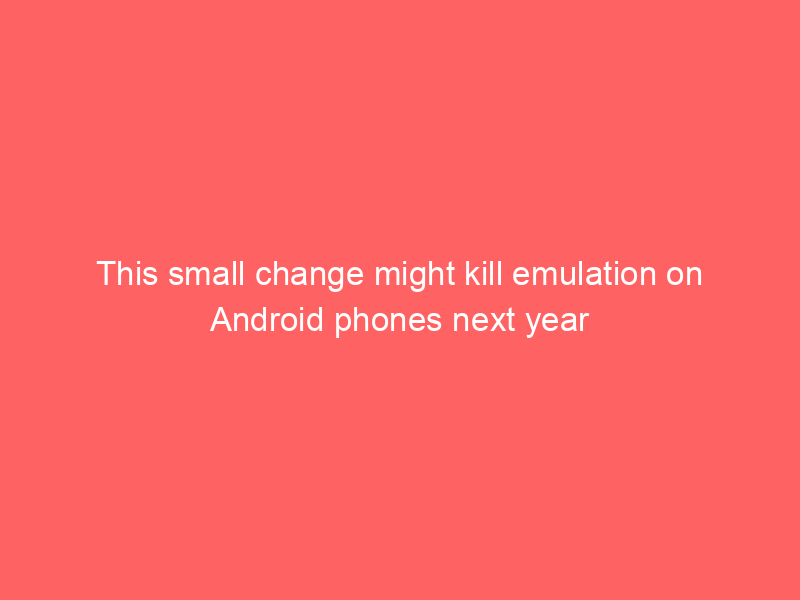
This small change might kill emulation on Android phones next year
The tech world is buzzing with activity regarding Android phones and emulation. Emulator apps allow users to run a wide range of operating systems on their Android devices, including Windows, macOS, and Linux. While this is currently a popular way for developers to test their apps and consumers to experience different operating systems, it’s raising concerns that this practice might be on the way out.
The threat: Reduced app store sales
A new report from Counterpoint suggests that the introduction of the Android 13 runtime could significantly impact the Android app store market. The new runtime, which brings significant changes to the Android operating system, is expected to make it significantly more difficult for emulators to run Android apps.
How it could impact apps:
* Reduced performance: Running emulation software can be significantly slower than running an app directly on an Android device. This could lead to a less smooth and enjoyable user experience for both the emulator and the app being emulated.
* Increased resource usage: Emulators require significant resources, such as RAM and processing power, to run Android apps. This can lead to overheating and battery consumption issues on the device.
* Limited functionality: Not all emulators are created equal, and some emulators may not be able to run all Android app features. This could mean that certain features of the app are unavailable when running through an emulator.
The potential consequences:
* Reduced adoption of Android apps: If users find that Android apps are less performant and offer limited functionality compared to native apps, they may be less likely to download them.
* Challenges for developers: Developers may need to invest significant time and resources in creating app versions optimized for the new Android runtime.
* Shift towards cloud-based solutions: As users become more comfortable with cloud-based services, there could be a shift towards offering app emulation solutions through cloud platforms.
A potential solution:
* Emulator makers: The report suggests that emulators could be granted access to specific developer tools that would allow them to emulate apps more efficiently.
* App store optimization: App developers could optimize their apps for emulators by reducing resource usage and ensuring compatibility with emulators.
* Continued research: More research is needed to understand the impact of the new Android runtime on the Android app store market and to develop solutions to address the challenges it poses.
Conclusion:
The introduction of the Android 13 runtime is a major event for the Android app store market. While it’s not the end of emulation, it’s likely to have a significant impact on the way apps are developed and distributed. As users become more aware of the challenges posed by emulators, we can expect to see more innovative solutions emerge to address these issues.







